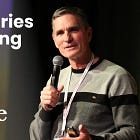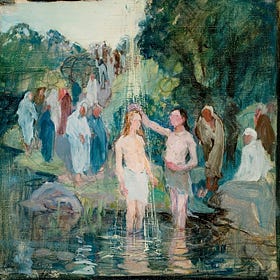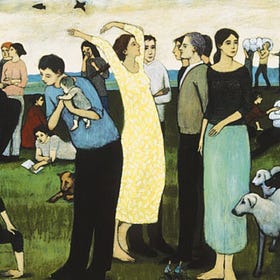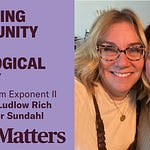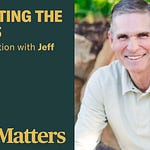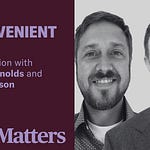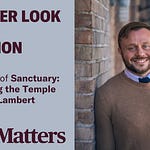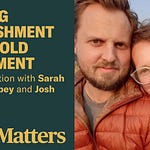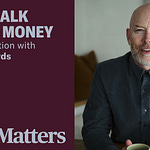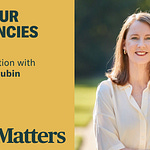Today, we’re sharing a conversation that feels especially urgent. In fact, we’d planned to release this episode later in the month—but this week, as a major hurricane moves through the Caribbean and the U.S. government shutdown is causing massively disruptive ripples in the daily life of countless families, we know so many are asking, What can I do?
We hope this conversation offers real practical guidance and clarity for getting to work today.
We’re joined by Sharon Eubank, author of the new book Doing Small Things with Great Love: How Everyday Humanitarians Are Changing the World.
Sharon has spent decades in humanitarian work around the globe, and now works as the director of Latter-day Saint Charities. In this conversation, she shares what her experience has taught her about ethical, lasting, and impactful relief.
We were struck by this term, “the second disaster.” Sharon explains how, all too often, well-meaning aid can actually become a second disaster—doing more harm, complicating and even obstructing urgent relief efforts. But she offers some surprisingly simple and practical ways to ensure that what we give and how we serve is genuinely helpful.
As our hearts turn to the Caribbean, this feels especially important—but the principles Sharon shares are just as vital at home. She explains why she believes we’re most effective where we live, how relationships and trusted networks form the foundation of lasting change, and why honoring agency and dignity is essential to any effort—whether local or global.
Sharon shared so many incredible insights—things that energized us to be helpers, and that empowered us to get started. We hope that in this time of deep need, fear, and urgency, that this episode will help you to recognize where you feel called, and help you know what to do first.
Resources to use to find reputable organizations to support:
MORE ON THIS TOPIC:
STUDY “COME FOLLOW ME” WITH FAITH MATTERS
What does it mean to redeem the dead?
Who is my family? Why do temple work for the dead? What is the purpose of family history work and record keeping? What does it mean to redeem the dead?
What is heaven like? (And what do we do with polygamy?)
What will heaven be like? How might I think about "obedience" in a way that isn't so transactional? What is "sealing" and what is the sealing ordinance? What does it mean for families to be eternal? What does it mean to focus on eternal things? Why does it matter that God has a body? And what on earth do we do with polygamy?
To receive Come Follow Me resource roundups from Faith Matters in your inbox, first be sure you are subscribed to the Faith Matters Substack, then go to manage your subscription and turn on notifications for “Come Follow Me”.
EMBRACING AN ENDOWMENT OF LOVE: A NEW EPISODE OF SANCTUARY
Melinda W. Brown is an author and educator with a master’s degree in Christian Practice from Duke Divinity School, where she focused on Christian Education. She is the author of Eve and Adam: Discovering the Beautiful Balance (Deseret Book, 2020) and An Endowment of Love: Embracing Christ’s Covenant Way of Living and Loving.
In this episode, Mindy and Larkin drop into the heart of the temple and what they believe God is intending to do in our lives through the temple. They explore what becomes possible when we move away from a “duty-bound, transactional” approach to God and the covenants we make with Him, and instead really see covenants for what they are—a deepening of relationship with Him and with each other.
They explore the value of involving the body in the act of temple rituals when making commitments to God, how to “mine symbols for new meanings”, and the reality that the temple might not be the place you feel God’s love most.
Ultimately, they both believe that the temple experience isn’t about earning Heaven in the future, but about teaching us how to experience Heaven here and now.
You can find Mindy’s book An Endowment of Love: Embracing Christ’s Covenant Way of Living and Loving on Amazon or at Deseret Book.





